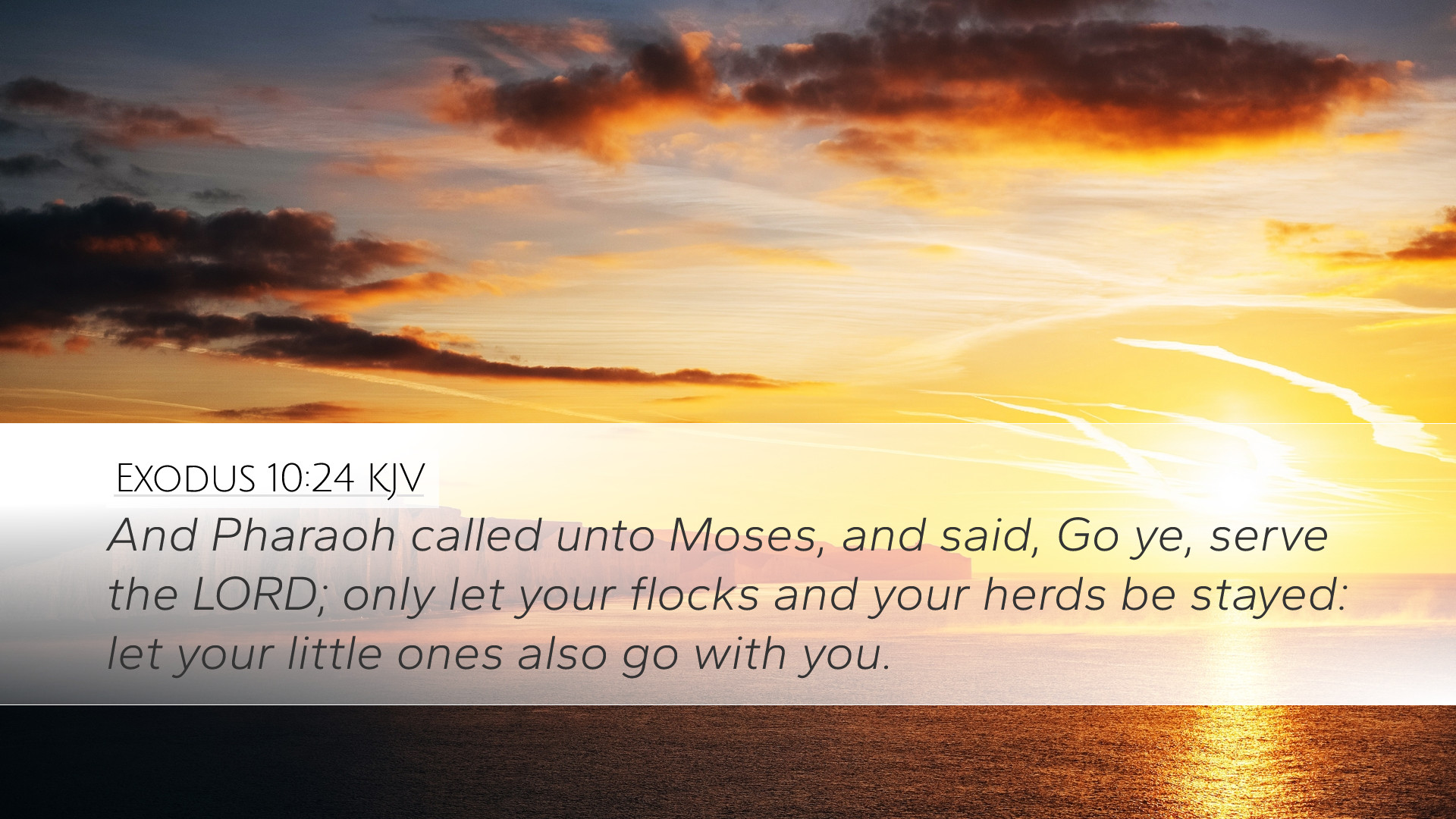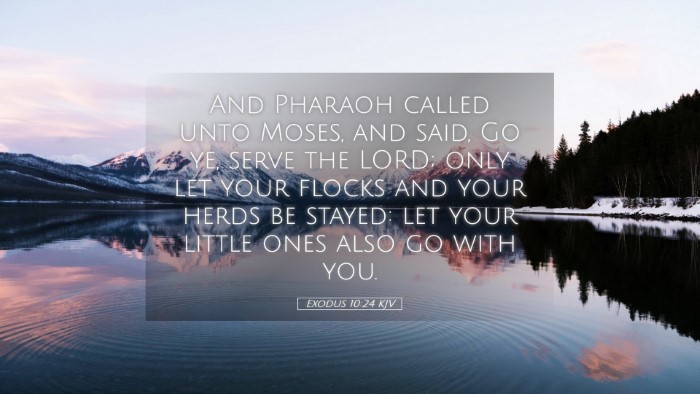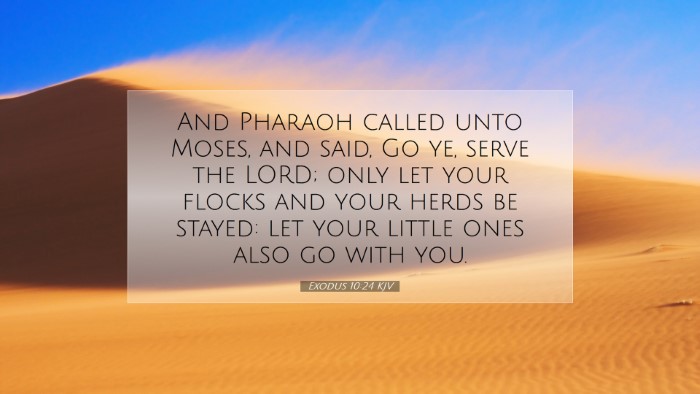Commentary on Exodus 10:24
Verse (Exodus 10:24): "And Pharaoh called unto Moses, and said, Go ye, serve the Lord; only let your flocks and your herds be stayed: let your little ones also go with you."
Overview
Exodus 10:24 captures a critical moment in the narrative of the Exodus, where Pharaoh concedes to the demands of Moses but imposes conditions that reveal his ongoing resistance to fully obeying God's directive. This verse illustrates the complexity of Pharaoh's character and the broader themes of obedience, repentance, and divine sovereignty.
Insights from Matthew Henry
Matthew Henry emphasizes the stubbornness of Pharaoh's heart even in the face of impending judgment. He notes that Pharaoh's incomplete compliance shows a strategic attempt to weaken Moses' position. Henry highlights the symbolism in Pharaoh allowing the children of Israel to leave but not their possessions, reflecting his unwillingness to fully release the grip of bondage. He states:
"Though the enemy may sometimes yield to our prayers, yet he will always seek to retain as much as he can, to serve his purpose."
This remark suggests that Pharaoh's heart is not genuinely repenting but rather maneuvering to maintain control. Henry articulates the tension between God’s sovereignty and human rebellion, indicating how God’s power may often confront human leaders who oppose His will.
Insights from Albert Barnes
Albert Barnes elaborates on the historical and theological significance of Pharaoh's request. He posits that Pharaoh’s insistence on retaining the livestock signifies a critical aspect of Egypt's economy and religious life, where cattle were central to their sacrifices and sustenance.
Barnes remarks on the strategic manipulation by Pharaoh, interpreting his terms for worship as a means of weakening the Israelites' resolve. He writes:
"The full deliverance of the Israelites would have involved the total renunciation of the Egyptian economic system."
Furthermore, Barnes acknowledges the profound lessons of partial surrender and compromise as exemplified by Pharaoh, cautioning believers that true worship requires total submission to God without reservation.
Insights from Adam Clarke
Adam Clarke draws attention to the emotional and spiritual implications of Pharaoh's response. He analyzes the phrase "let your little ones also go with you" as emblematic of a spiritual leader's responsibility to ensure not just the physical emancipation of people but their spiritual well-being. Clarke asserts:
"Leaders must consider the generational implications of their decisions, for the children represent hope and the future of Israel."
Clarke also delves into the significance of flocks and herds being withheld. He articulates that Pharaoh's reluctance to free the livestock reveals a deeper issue—a metaphor for the cultural idols that Egyptians clung to, suggesting that to truly serve God, one must forsake all competing interests.
Theological Reflections
The verse presents important theological reflections relevant for pastors, students, and scholars. It raises questions about:
- Obedience and Partiality: The verse challenges the notion of partial obedience being sufficient. While Pharaoh allows some aspects of the Israelites' worship, his conditions highlight the incomplete nature of his repentance. This teaches that God desires total obedience.
- The Nature of True Worship: The conditions set by Pharaoh indicate a misunderstanding of what it means to worship God. True worship is not about negotiation but about unconditional surrender to God's will.
- Divine Sovereignty: The ongoing dialogue between Moses and Pharaoh showcases God's sovereignty over human affairs. It illustrates how God orchestrates events to fulfill His covenant promises, even amid human hardness of heart.
- Generational Responsibility: The mention of “little ones” also invokes a discussion on the importance of faith transmission across generations, highlighting the critical duty of believers to impart faith to the next generation.
Conclusion
Exodus 10:24 serves as a poignant reminder of the dynamics between human authority, divine command, and the complexities of obedience. Through the insights of Matthew Henry, Albert Barnes, and Adam Clarke, we see a rich tapestry of themes that encourage reflection on the totality of surrender to God, the implications of leadership, and the vital role of future generations in the life of faith. This verse beckons readers to consider where their allegiance lies and what it means to worship God fully and without reservation.


